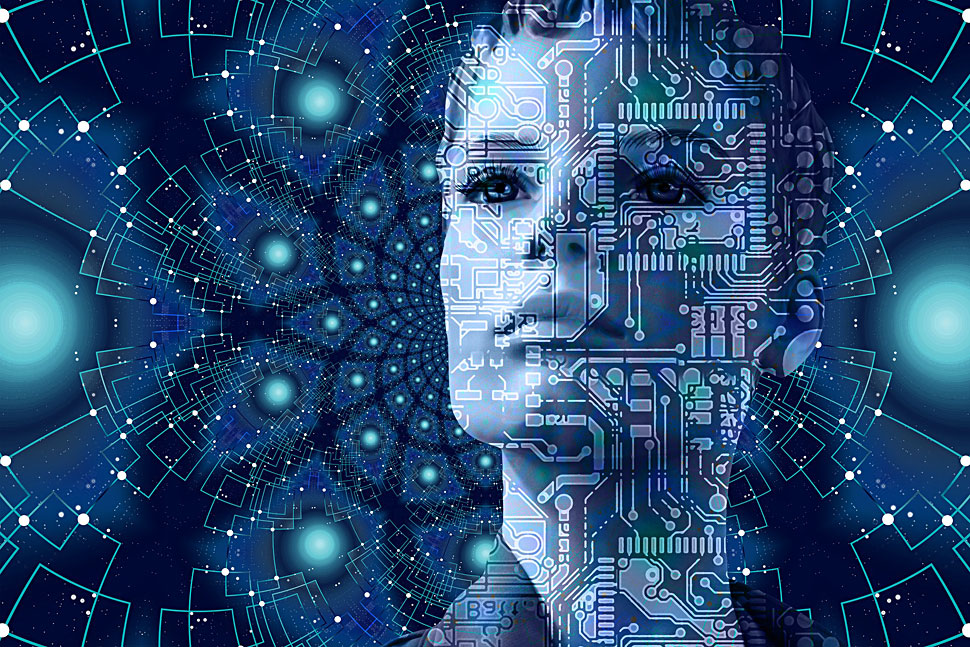Artificial intelligence (AI) enables systems to learn from a wide range of information in order to tasks that require human-like thinking skills. Deep learning can be used to train systems to process large amounts of data and recognise data patterns.

The history of artificial intelligence
The term «artificial intelligence“ was coined back in 1956. It is only today that AI is gaining in importance thanks to larger data volumes, highly developed algorithms and improvements in computing power and data storage. AI technologies are neither scary nor intelligent. Instead, it is characterised by many specific advantages in many industries.
- AI automates learning through repetition and insights based on data. AI leads to large data reliably perform software-controlled tasks. Nevertheless, human intelligence remains indispensable for setting up the system and determining the right questions.
- AI makes existing products more intelligent. In very few cases will you be able to buy a stand-alone AI application. Instead, products that you already use will be enhanced with AI capabilities. Automation, chatbots and intelligent machines can improve many tasks or products, from security and medical diagnostics to plant analyses.
- AI is adaptable thanks to generative learning algorithms. Just as the algorithm can teach itself to play chess, programmes and products can also constantly absorb such instructions.
- AI makes it possible to analyse large volumes of data. Just a few years ago, it would have been almost impossible to build a fraud detection system with AI. Thanks to enormous computing power and big data, things are different today. The more data is made available for such models, the more precise they become.
- AI achieves maximum accuracy thanks to neural networks. For example, interactions with Alexa and Google are based on deep learning. The more we use these functions, the more accurate they become. In medicine, AI processes now achieve the same level of accuracy as well-trained radiologists.
- AI unlocks the full potential of data. With self-learning algorithms, the answers are in the data. AI helps to find them. As data plays a greater role today than in the past, it gives companies a competitive advantage. Companies with the best data gain an edge, even if their competitors use similar processes.
What challenges does the use of artificial intelligence present us with?
Artificial intelligence is creating change everywhere. The most important prerequisite for AI systems to learn is data. This is the only way to acquire knowledge. However, this also means that inaccuracies in the data are reflected in the results. Today’s AI systems are trained for clearly defined tasks. A fraud detection system is not able to recognise a policy.
How artificial intelligence works
Large amounts of data in combination with fast, iterative calculations and intelligent algorithms enable the software to learn automatically based on patterns or features in the data. AI is a broad field of research and encompasses many theories, methods and technologies.
AI and BrokerStar
AI is already being used by means of specialised software for automatic software testing. AI functions are also used in the reporting system. Currently, the use of BrokerStar data can be accessed. This would allow queries to be made more easily, e.g. via operation. This also requires specialised technology, as mainstream applications such as ChatGPT, which obtain data from the public domain, are not suitable. WMC is working intensively on these further developments, which will be incorporated seamlessly into the software.
Source: SAS Institute
